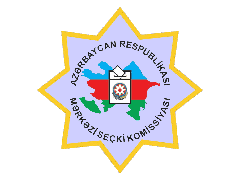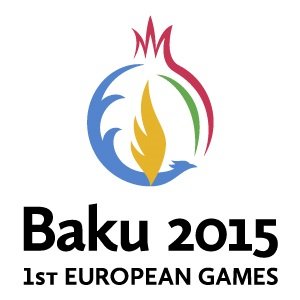NEWS
-
Turkey's Mediterranean city of Antalya has hosted a digital fashion week dedicated to Azerbaijan’s victory in the Second Karabakh war, Azertag reported on August 27.
Norwegian-born Azerbaijani Shervin Najafpour showcased her fashion collection under the name of “The Great Return” at Antalya Fashion Week Digital 2021.
The collection conveyed a number of meaningful messages to celebrate Azerbaijan’s victory. It consisted of only 11 outfits that symbolized Azerbaijan’s historic victory gained in November 11. By using number eight during the exhibition, the author hinted at historic Shusha city’s liberation from the Armenian occupation on November 8.
Another feature of the new collection was that the clothes were decorated with "Kharibulbul" paintings and accessories made by Azerbaijani master Nigar Nasibli exclusively for this collection. Kharibulbul that grows in Karabakh also symbolizes Azerbaijan’s victory.
The 13th century Evdir Khan site that hosted the fashion show, was deliberately chosen to highlight its historical links to Azerbaijan’s Shirvanshahs Palace.
Furthermore, the video displayed at the event included messages such as "I am the star of Karabakh", "The Great Return", "Darling, I am waiting for you on the Jidir plain, Shusha", and “The power of love will unite us on Khudafarin's bridge", "Azerbaijan, Turkey - two states, one nation", among others.
The collection was demonstrated with the financial support of the Fund for Support to Azerbaijani Diaspora and the Doshemealti Municipality of Turkey.
-
Next Friday, the Swedish supergroup are linking back up after nearly four decades to take part in the so-called ‘ABBA Voyage’ where their new music will debut.
Report informs, citing foreign media, that ABBA Voyage will see a hologram show emerge in London with a purpose-built theatre specifically designed for the project. Björn Ulvaeus, Agnetha Faltskog, Benny Andersson, and Anni-Frid Lyngstad, the four members of ABBA, will be projected as younger versions of themselves.
The projections have been dubbed ‘ABBAtars’ and will be able to perform songs and speak to the audience during live shows.
As of Friday, September 3, the long wait for new music from the Swedish stars will be over. The release of new material was originally delayed when rumours first made the rounds in 2018 after the quartet announced they were looking to make new music after 35 years, and subsequently release it in 2020. This was also delayed due to the pandemic.
Geoff Lloyd, host of the Reasons To Be Cheerful podcast stated on behalf of the supergroup that they would be releasing five new songs in 2021. After spending some time with Björn, the podcast host said, “he’s quarantining – he’s got an island in the Stockholm archipelago.”
Read this next: 10 early-80s post-disco tracks that helped inspire house
“They’ve recorded five new songs. They should have been out at the end of last year… Because of technical difficulties and the pandemic, it’s delayed things. But he promised me that the new Abba music will be out in 2021.”
Last month, ABBA’s ‘Gold’ record became the first album to reach 1,000 weeks in the UK Top 100 - that amounts to 19 entire years.
-
27.08.2021
Nothing can compare with the taste of dolma. Every summer, all foodies gather in Azerbaijan to enjoy this delicious dish at the International Dolma Festival in Azerbaijan.
Here you can treat yourself to different kinds of dolma, such as aubergines, tomatoes, peppers and cucumbers as well as made of cabbage leaves, apple and quince and more.
The name of this ancient national dish originates with the Azerbaijani verb doldurmag (to stuff) as it means various leaves, vegetables and fruits stuffed with minced meat.
Dolma is traditionally stuffed with ground lamb and/or beef, rice, onions, and herbs.
Stuffed vine leaves (yarpag dolmasi) are one of the most popular types of dolma.
In regions, dolma is also made of the leaves of the lime tree, quince, beech tree, sorrel, bean leaves, penny cress and other plants.
The dish is best served with cold plain yogurt, and lavash bread.
In 2019, a culinary book titled "Dolma in Azerbaijani cuisine. 381 recipes" has been included in the top three best culinary books of the Gourmand World Cookbook Awards.
President of the National Culinary Association, Head of the National Culinary Center Tahir Amiraslanov as well as young cooks Azad Musabeyli, Aygul Asgarova, Jeyran Asgarova, Aynur Amiraslanova, Aghakarim Shamilzade wrote the book dedicated to one of the most delicious national dishes.
The book contains recipes for 381 types of dolma that were presented at the International dolma festivals in Azerbaijan in 2016 and 2017.
Since 2016, the International Dolma Festival has been successfully organized in Azerbaijan.
The festival's first edition brought together about 400 representatives from 24 regions, as well as from Turkey, Ukraine and Jordan.
-
27.08.2021
International Day of Azerbaijani Mugham and Silk Road countries’ Music has been solemnly marked in the country.
Every year, the day is celebrated by all mugham singers and music lovers.
The decision to proclaim August 26 as the International Day of Azerbaijani Mugham was made by the administration of the Canadian city of Niagara-on-the-Lake and the leadership of the traditional annual Niagara International Chamber Music Festival 2010.
First Vice-President of Azerbaijan Mehriban Aliyeva has played a major role in promoting mugham art worldwide.
Thanks to the efforts of First Vice-President , UNESCO proclaimed Azerbaijani Mugham a "Masterpiece of the Oral and Intangible Heritage of Humanity" (2008). The mugham art entered UNESCO Intangible Cultural Heritage Lists in 2008.
At the initiative of the Heydar Aliyev Foundation, the International World of Mugham Festival was held in country for the first time in 2009.
Music experts from other countries took part in symposium held within the festival.
Mugham modes
The mugham modes are associated not only with scales but with an orally transmitted collection of melodies and melodic fragments that performers use in the course of improvisation.
The mugham contains seven main modes - Rast, Shur, Segah (are especially common), Shushtar, Bayaty-Shiraz, Chahargah, Humayun and three collateral kinds - shahnaz, sarendj, chargah in some other form.
The short selection of Azerbaijani mugham played in balaban, national wind instrument was included on the Voyager Golden Record, attached to the Voyager spacecraft as representing world music, included among many cultural achievements of humanity.
The 20th century was a turning point for the traditional art of mugham as Uzeyir Hajibeyov created "Leyli and Majnun" mugham opera, based on a synthesis of mugham and European classical music.
Next, Fikrat Amirov introduced mugham for symphonic orchestra, based on classical folk pieces and was performed by many renowned symphony orchestras all over the world.
Three major schools of mugham performance existed from the late 19th and early 20th centuries in Karabakh, Shirvan, and Baku.
In the late 1960s and 1970s, a completely new mugham style emerged in the country.
Vagif Mustafazade is considered the founder of Azerbaijani jazz-mugham , who blended the two music styles.
Azerbaijan's living vocal treasure Alim Gasimov has also played a great role in promoting mugham art.
The mugham singer was awarded the International Music Council-UNESCO Music Prize, one of the highest international accolades for music in 1999.
International Mugham Center
International Mugham Center has been operating in Baku since 2008. Marvelous design of the building was inspired by the elements and shapes of the tar, national musical instrument used in performing mugham.
The center covers 7,500 square meters and has three stories. The building includes 350-seat concert hall, club, classrooms, recording studio, 80-seat restaurant "Ud".
Equipments for the building were brought from Italy, Austria, France and Turkey. Over 2,000 glasses of different sizes were used in construction.
Now the Mugham Center implements many large-scale projects aimed at promoting the Azerbaijani culture, including mugham art.
Among them are such projects as "Mugham Evenings", "Evenings of ashug music", "Pearls of ethnic music", "Unforgettable", "Evenings of Dastan", Baku Summer Jazz Days and others.
The center hosts mugham and jazz festivals, international conferences and spectacular concerts.
The International Mugham Center is actively expanding international ties with cultural institutions.
The Mugham Center has recently signed a memorandum of cooperation with the Yunus Emre Institute.
The sides discussed issues of expanding activities and prepared a joint action plan between the International Mugham Center and cultural centers and music schools operating in Turkey.
The Mugham Center also reached an agreement with the Federal Directorate of Music and Festival Programs ROSCONCERT.
The document was signed within the framework of cooperation between Russia and Azerbaijan in the field of culture and art in 2021–2023.
The agreement is aimed at organizing humanitarian and educational projects within the framework of cultural exchange.
In January, the Mugham Center expanded ties with the Polish Baltic Philharmonic and agreed on holding joint cultural projects and concerts in the post-pandemic period.
Moreover, the Mugham Center has recently signed a memorandum on joint cooperation with Heydar Aliyev Palace.
The document was signed with the aim of developing cooperation and strengthening relations in the field of culture and art, promoting national spiritual values and cultural heritage, preparing new joint projects, holding events, festivals and meetings.
-
27.08.2021
Trend of the Year 2021 Awarding Ceremony has been in Baku.
Initiated by the Caspian Events Group, the prize is awarded for the fourth time for annual achievements in the field of culture and art, theater and cinema, pop and folk art, television and radio, business and tourism, medicine and cosmetology, fashion and beauty industry, design and photography, media, etc. The laureates of the award were determined by voting on social networks and media monitoring.
Among the laureates of Trend of the Year 2021 were the participant of the Karabakh war Vadim Eyvazov, Trend Life correspondent Vugar Imanov, People's Artists Hamida Omarova and Gurban Ismayilov, folk poet Nariman Hasanzade, 25-time world kickboxing champion Eduard Mammadov, singer Ayaz Babayev, stylist Sabina Imanova and others.
The prize was also presented in Turkey to the famous actor Ahmet Senkaya, known for the series "Chukur", blogger Ozkan Sagin and the animation film team Sen Chal Kapimi. Honored artist Elnur Kerimov was the host of the event.
The project manager is Tural Alakbarov, executive producer - Ilmirza Aghabekhov, chief producers - Aydin Huseynov and Javid Nureddinli.
-
World-famous artist Sakit Mammadov has been included in the jury of the International Children's Drawing Competition "Nature of the Planet".
The art competition will be held in Moscow on September - 30 in the Botanical Garden of Moscow State University "Apothecary Garden", known as the oldest botanical gardens in Russia.
The exhibition will feature best artworks of the young talents from 16 countries, including Azerbaijan, Turkey, Ukraine,Belarus, Poland, Estonia, Italy, etc.
The works for the exhibition have been selected by famous artists and cultural figures from different countries within the framework of the project "The World through the Eyes of Children".
Sakit Mammadov won the hearts of art lovers with his colorful paintings. His masterpieces are among those that collectors want to get with great pleasure at the world museums, galleries, and the auctions.
The name of the famous Azerbaijani artist is well known to art lovers far beyond the borders.
The artist's art works are exhibited in the galleries of Germany, France, Italy, Turkey, Belgium, Russia, Czech Republic, Sweden, Poland, Austria, Hungary, Australia and other countries.
Opalism is a school, a style the foundation of which was laid by academic artist Sakit Mammadov. Opalism word’s etymology was taken from the opal stone.
The warm color pattern in opal had won Sakit Mammadov’s admiration from the youth. Almost in all his works the colors of stone is found.
Sakit Mammadov is a member of the UNESCO Artists Union and the World Academy of Arts. He is Honorary Academician of the Russian Imperial Academy of Arts and the European Academy of Natural Sciences, Count of the Heraldic Academy of the Vatican.
-
The European Union Delegation to Azerbaijan has presented the “European Fairy Tales” project. Within this social project, the Delegation translated into the Azerbaijani language fairy-tales and legends from 27 European Union Member States. The collection of fairy tales printed as a colourful book will be distributed among children in various orphanages, shelters as well as children libraries across the country.
This book will help children in Azerbaijan to learn about different nations of Europe, discover their roots and traditions as well as European values. Blighted by countless wars, Europe of today strives for peace. That peace starts from understanding each other, respecting any differences, finding similarities and advancing cooperation. May this book help on a noble path towards a bright and peaceful future.
To introduce a wider public to the magic world of European fairy-tales, along with the print version, the EU Delegation jointly with Embassies of EU Member States also prepared video versions of the fairy-tales narrated by Ambassadors and other representatives of the Embassies and dubbed in the Azerbaijani language by professional actors. The video-tales will be released daily on the Delegation’s facebook page https://www.facebook.com/EUDelegationtoAzerbaijan/ starting from 25 August 2021.
The e-version of the book in Azerbaijani language is available at the EU Delegation web-site.
-
The Narimanfilm Production Company prepares for the second stage of the filming process of the full-length feature film "The Homeland".
The script was written and directed by Ilgar Safat. Director of photography is Mindia Esadze. Film is produced by Nariman Mammadov. The film features three most important events in the modern history of Azerbaijan - the expulsion of Azerbaijanis from Gafan, the Khojaly genocide and the liberation of the occupied lands of Karabakh.
The project is being implemented with the support of the Ministry of Culture of Azerbaijan, the Heydar Aliyev Foundation, Pasha Holding, as well as Gazelli Group, ITV, Caspian Marine Services, AZMADE, Azersun. Caspian Energy Club takes a special part in the work on the film.
The film stars actors Rustam Jabrayilov, Alina Vorontsova, Haji Ismayilov, Orkhan Abbasov, Azar Aydamir, Rashad Safarov, Gorgud Jafar, Amina Abbasova and others.
-
The President of the International Turkic Culture and Heritage Foundation Gunay Afandiyeva has received the newly appointed Azerbaijani Ambassador to Poland Nargiz Gurbanova.
During the meeting, the sides discussed the activities of the International Turkic Culture and Heritage Foundation as well as ongoing projects aimed at protectiing the cultural heritage of the Turkish-speaking peoples.
In her remarks, Gunay Afandiyeva stressed the importance of bringing different nations together andestablishing strong ties between the foundation and other countries to promote cultural values.
The Azerbaijani Ambassador to Poland Nargiz Gurbanova praised the Foundation's activities and expreessed her support to the future projects to be implemente by the International Turkic Culture and Heritage Foundation in partnership with Poland.
The meeting continued with an exchange of views.
Initiated in 2012, Turkic Culture and Heritage Foundation focuses on preservation of Turkic heritage in member countries as well as conducting projects in collaboration with partners in third countries.
The Foundation provides assistance in the protection, study and promotion of Turkic culture and heritage through supporting and funding various activities, projects and programs. It carries out its activities in cooperation with TURKSOY and the Turkic Academy.
Cooperation Council of the Turkic Speaking States (CCTSS) is an intergovernmental organization, which aims at promoting comprehensive cooperation among Turkic Speaking States.
The organization was established by the Nakhchivan Agreement, which was signed at the Turkic Summit in 2009.
In order to fulfill the objectives and tasks of the CCTSS, the organization has been divided into the following structures: Council of Heads of States; Council of Foreign Ministers, Senior Officials Committee, Council of Elders, Secretariat, Coordination Committee, Representation Office of the Turkic Council in Budapest.
-
For many centuries, Azerbaijani people have been fascinated by magnificent music performed on tar.
Tar or a long-necked plucked lute is traditionally crafted and performed throughout the country.
In 2012, the craftsmanship and performance art of the tar was added to the UNESCO's List of the Intangible Cultural Heritage of Humanity.
The music instrument is made from mulberry, walnut and pear trees, and the face of the instrument is made from cattle heart membrane. Its strings differ by thickness and composition.
In Azerbaijan music, tar was used primarily as a lead instrument for mugham singers. Tar musicians performed in the weddings, public concerts and other festivities.
Tar renovation
In the 70s of the 19th century, the tar was renovated by prominent tar musician Mirza Sadig known as Sadigdjan.
At first, he increased the number of strings to 18, and then limited it to 13 strings.
The tar was previously larger in size and was held on the knees. Sadigdjan made the tar smaller. Early tar players held the instrument to their knees.
The musician developed a new manner by reducing the size of the instrument, and for the first time presented the play on a tar nestled to the chest.
Having gained popularity, the tar of this design quickly spread throughout the Caucasus.
Electro Tar
Although the new music instrument is similar to the tar, it differs from it in a number of features.
The idea and copyright for a new music instrument called "RA.TAR" belong to Ramil Iskandarov
The new tar features a cow's heart membrane. The electronic tar is made of wood and it sounds in a completely new way.
Ramil Iskandarov expressed his hope that "RA.TAR" will become a popular music instrument both in Azerbaijan and abroad.



.png?v=DqKtbngFu8-eBM77oNP77E2SV2gNF4_tUk0Y9IcK12s)

















